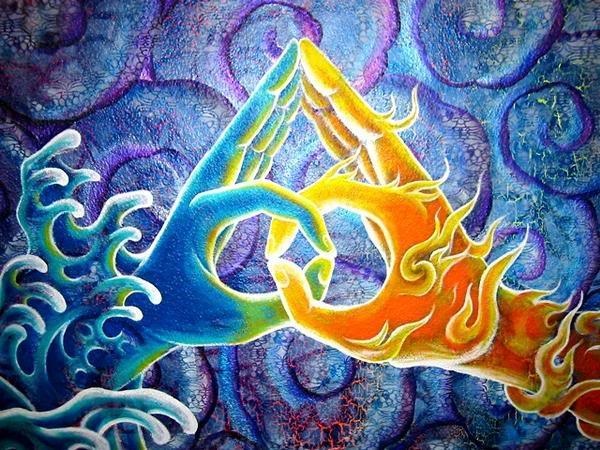In the first part, I spoke about the two types of love, the opposite of love (which is fear), and how fear and love make up two sides of a metaphysical coin. That coin is the second type of love. Confused yet? Bear with me. In this part, we will primarily examine the second type of love, but for the sake of clarity, I will refer to the first type as ‘familiar love’ and the second as ‘universal love.’
Previously, we discussed the fact that most people lean one of two ways in their perspective on life; toward fear or toward familiar love, which are opposites. For many, it is enough to find a way to lean primarily toward familiar love. But there are many (including me) who believe that there is a middle way. It is the way of universal love.
Universal love is love beyond love, and beyond fear. Where familiar love and fear consist of the realization of positive or negative emotion, universal love entails neither. It is equanimity, balance, yin and yang. It is complete realization of the eternal present. So why call it love? First, it is another way of understanding ‘what is.’ Think of all the different religions in the world. At the core, all of those belief systems are expressing the same thing. The term ‘universal love’ is simply another expression. It speaks to me, and in my experience, it speaks to many others as well. Second, universal love is what many people like to refer to as ‘unconditional love.’ That term is thrown around, but it is rarely realized.
Honestly examine your understanding of this term, ‘unconditional love.’ For most, it applies to the people we believe we must love, i.e. our parents, children, siblings, partners. What it actually means is that we believe we must put up with this other person no matter what they do. If that sounds familiar, then that’s what it is: familiar love, which comes along with its opposite—fear. The reason I don’t use ‘unconditional love’ as a term for my own purposes is because I think it is misused and misunderstood. Universal love IS unconditional, but not in any helpless, degraded sense. Often when we tell someone we love them unconditionally, it is to curb some insecurity, or to put oneself in the position of the martyr. It is manipulative and unconscious behavior, and thus, fear-driven behavior.
Universal love moves beyond this dualistic coin of love and fear. It may sound ridiculous, but when we experience complete acceptance of the present moment, we cannot help but love everyone and everything. It is not a gushy, volatile, or even excited feeling. It is the feeling of deep, intense connection with the universe and the realization that you share in the same spirit with all others. It is calm and expansive. Neither the greatest joys or deepest sorrows can sway this state of being. From this place we can truly love others unconditionally. We do not need to get caught up in petty arguments, or insecurities. We see others as they truly are because we have realized our own true state.
Understand that this does not mean you become indifferent or that every person will garner the same amount of attention from you. On the contrary, realizing this state of being even briefly has the capacity to immensely deepen the relationships in your life. Think of it this way. Prior to experiencing universal love, you solely operated on the dualism of familiar love/fear, which is a wild rollercoaster of emotions. Now that you’ve realized universal love, it stays with you as a still and peaceful lake untouched by the storms of dualistic life. Even when there is pain or intense joy, you are still in touch with that lake. In this way, it begins to permeate all aspects of your life. You approach people and circumstances in a loving manner, respectful of their beingness. You are less inclined to argue, and fight, but if you do, you do it constructively—ready to listen, and aware of your emotions while not allowing them to dictate your actions. That is true love—acceptance and peace.
Finally, know that we are not born with the instinct for universal love. It requires cultivation. I use lovingkindness meditation for this purpose, but we must all find our own way. How will you realize universal love?
By Terence Stone
Related Articles:
Living with Emotional Pain and Breaking the Cycle
Why Love Hurts and Being a Wholesome Half
Forgiveness: It’s About You
5 Contemplative Practices for Improving Well-Being
If you enjoyed this article and want to get involved, please follow the blog, like us on facebook, and follow us on twitter.


I agree that universal love must be nurtured and cultivated. great post !
All negative emotions are based of fear, Great Post! thank you!